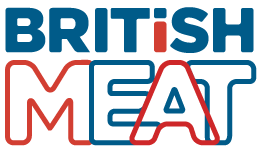Environment
Giving up fast fashion could be better than cutting out meat
The vast majority of meat and dairy consumed in the UK comes from British and Irish livestock, reared predominantly on grass that’s been grown using water that falls as rain.
hat permanent pasture has the dual purpose of providing food to rear livestock and absorbing CO2 from the atmosphere to grow more grass and store the excess in the soil.
This means that British meat and dairy products have a much lower environmental footprint than those in other countries. Agriculture is uniquely placed to be part of the solution, and the NFU has set the ambitious goal of reaching net zero greenhouse gas (GHG) emissions across agriculture by 2040.
The reality is that we have become a society that over-consumes. We eat more than we need to and waste far too much.
If British consumers act on the calls to go vegan, they will be giving up British meat and dairy and cutting out essential nutrients from their diet, with unknown consequences for the environment.
And, depending on what they replace that lost nutrition with, the substitute food could well have been less sustainably produced.
The lifestyle trade-off
The reality is that we have become a society that over-consumes. We eat more than we need to and waste far too much.
We have embraced ‘fast fashion’ and the convenience of getting multiple items delivered to our door only to return an average of 40 percent of them and throw much of the rest away after only a few uses. We send millions of unnecessary texts and emails, each of which uses a tiny amount of energy but, put together, adds up to a huge amount. We love our cars, budget airlines and electronic gadgets. We are one big carbon footprint.
It’s not practical to cut all these things out completely. But it makes perfect sense to reduce all our carbon-heavy activities across the board.
However, British consumers are being asked to cut out something that could have a huge negative impact on their health.
Buying fewer clothes or taking fewer flights might be an inconvenience, but removing two major food groups which are the only source of certain vitamins and nutrients is a potential risk to public health.
Get it wrong, or start relying on the type of processed plant-based convenience foods that are becoming popular, and there may be an increased risk of developing health problems.
